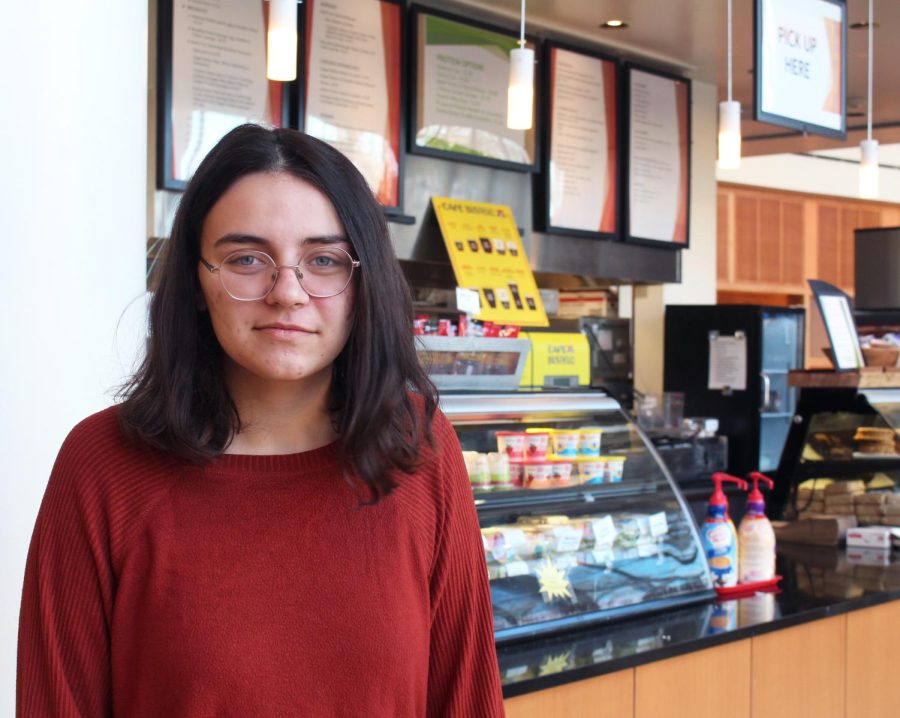Op-ed: Free Palestine, a call to action
December 5, 2022
This fall, as many Americans gathered to celebrate Thanksgiving — a holiday that traditionally marks both the fall harvest and the advent of American settler violence — Israeli settlers and soldiers have beaten, injured, and murdered a higher rate of Palestinians than in any other year recorded by the UN.
This violence has escalated throughout the Palestinian olive harvest season, historically a “key economic, social and cultural event” for between 80,000 to 100,000 Palestinian families who, according to the UN, rely on the harvest for their income and wellbeing. According to the Times of Israel, on Oct. 18, a 70-year old activist was beaten with clubs by masked settlers in the illegally occupied West Bank for accompanying Palestinian farmers into their fields. On Nov. 3, a group of settlers were recorded beating and setting dogs on a Palestinian family who were harvesting olives on their own land. On Nov. 5, the UN reported that a group of about 40 Israeli settlers assaulted and stoned three Palestinians, including a 13-year-old child, while they were harvesting their olive trees, and then stole their crops and harvesting machine.
These incidents are not isolated. One report by Haaretz found that there had been over 100 cases of settler violence against Palestinians in just 10 days this October. This violence is also not the result of rogue settlers acting against the rule of law or will of the Israeli government; in fact, B’Tselem has reported that the Israeli government legalizes, subsidizes and defends violent dispossession of Palestinians from their land, communities and homes.
Settler violence in Palestine is also not only a modern symptom of Israel’s increasingly far-right government. In 1948, Jewish settlers forcibly displaced more than 700,000 Palestinians from their homes in the Nakba (Arabic for “catastrophe”). Today, Israel continues to illegally refuse the right of return for seven million Palestinian refugees. Internally, Israel denies Palestinians equal rights in immigration and relocation, political participation and freedom of movement, and has passed discriminatory laws to expropriate Palestinian land, including for Jewish-only communities. Groups like Amnesty International and Israeli human rights organizations such as B’Tselem and Yesh Din have described Israel as an apartheid state.
So why does Grinnell College, a “social justice institution,” continue to fund and support Israel’s violent occupation of Palestinian lands?
The College purchases and sells Sabra products, including hummus, at the Spencer Grill. Sabra is co-owned by the Strauss Group. The Harvard Crimson has reported that the Strauss Group provides direct financial assistance to the Israeli Defense Forces. The College purchases and uses HP computer and technology products; the Who Profits from the Occupation independent research center has found that HP-branded corporations provide services, technology, and servers to the Israeli army and police as they enforce and maintain Israeli apartheid. The College has also historically refused to divest its investments from corporations and mutual funds that cause harm; according to an April 2018 report from the College board of trustees, the College refused to divest its $2.9 billion endowment from fossil fuel industries. Because the endowment is so opaque, we have little idea of what other harm the College may be causing through their financial support.
There is an urgent need for solidarity with Palestinians at Grinnell. U.S. taxpayers give Israel $3.8 billion in military funding each year, according to the White House. Student workers at Grinnell provide the labor and tuition payments that keep the College running, allowing the College to continue funding Israel’s colonial apartheid project. Yet despite their position of complicity, many students at Grinnell remain uncomfortable with discussing the plight of Palestinians, the ways that Grinnell College contributes to the oppression of Palestinian peoples or even in discussing colonialism at all. Why has the College’s direct support of colonial violence been reduced to a neutral moral issue? As a Grinnell student, I cannot stand by while the College invests the profits of my labor in Israeli settler violence.
Palestinians have been clear about the action we can take in solidarity with their fight for liberation. Nearly all of Palestinian civil society has endorsed the Boycott, Divestment, Sanctions (BDS) Movement, which aims to end Israeli apartheid by withdrawing global economic support for it. This includes the Palestinian Trade Union Coalition for BDS, which has called on trade unions across the world to take action to support BDS and Palestinian workers.
Grinnell students should ask themselves whether they are comfortable with their labor and support being co-opted to defend and maintain an apartheid state. And then they should take real action — by boycotting Sabra, demanding that the College end its financial support of Israeli apartheid, and by standing in solidarity with the Palestinian struggle for liberation wherever possible.
























































